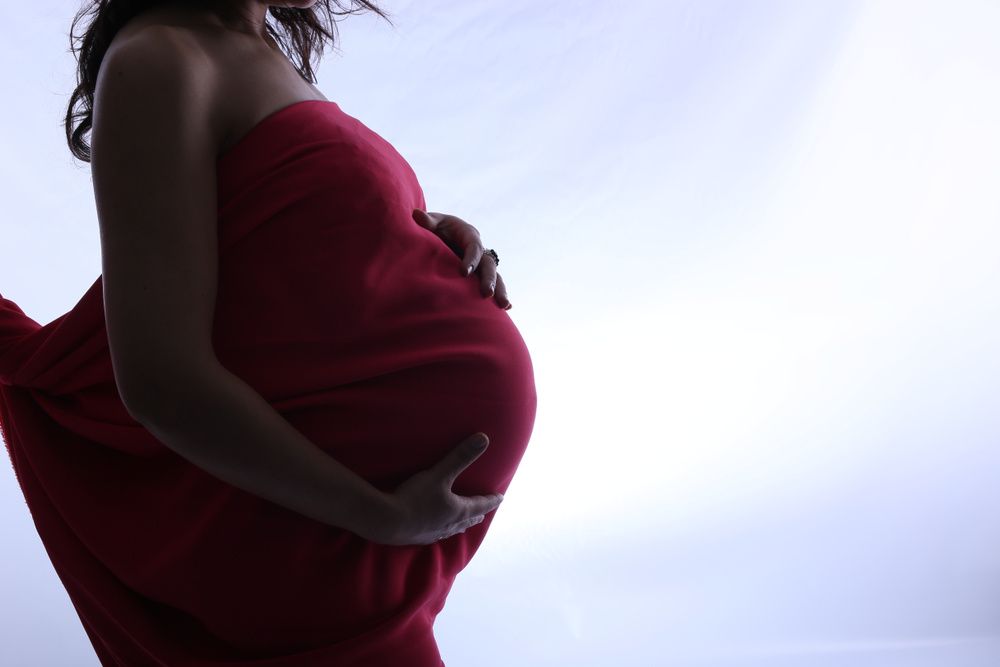Celebrity News
It was nearly a month before my best friend went into labor, and we were all awaiting the arrival of her baby daughter. She had a routine doctor's visit that she assured me was "no big deal", but seemed to take longer than usual. Less than 10 hours later, my friend of more than ten years was fighting for both her life and the life of her child in the emergency unit of a New Orleans hospital.
It wasn't until later that I learned that she had been diagnosed with preeclampsia, which is characterized by hypertension that usually occurs around the 20th week of pregnancy. Preeclampsia, also called toxemia, is one of the leading causes of maternal death for black women, and studies show we are more than twice as likely to die from the condition than our non-ethnic peers.
Kenya Moore Daly recently proved that celebrities aren't immune to complications during childbirth when she made this announcement on Instagram three days ago:
"I made fun of my swollen feet at @cynthiabailey10 party. Next day my tests came back for possible preeclampsia... I gained 17 lbs in ONE week due to severe swelling and water retention, high blood pressure, and excess protein in urine. This is NOT normal! I took more tests. Baby is fine but if they come back higher #babydaly will have to come same day."
"Staying positive. To my pregnant sisters please go to your visits and tell the doctor of any drastic changes. Thank God I have great doctors.🙏🏾 #babydaly #highrisk #love #family #miraclebaby #kenyamoore #babybump #pregnantover40"
Despite being one of the most developed countries in the world, the U.S. still manages to have the highest maternal death rate. Other stars like Mariah Carey, Kim Kardashian West, and even Beyonce, who recently shared that she experienced toxemia while pregnant with her twins Rumi and Sir, have also suffered from the potentially fatal condition that can ultimately result in preterm birth or placental obstruction.
Thankfully, preeclampsia can be managed and most cases are preventable with the right resources and information. Here's everything you need to know about the condition:
Watch Out For Preeclampsia Symptoms
One of the most effective ways to prevent toxemia is to know the symptoms. Along with keeping a close eye on your blood pressure during your pregnancy, be sure to tell your doctor if you're experiencing severe headaches, changes in vision, or an abnormal shortness of breath during your third trimester. One of the most telling signs of preeclampsia is an increased level of protein in your urine, and you can test this by picking up some DIY urinalysis test strips from your local drug store or requesting a test from your doctor.
Know The Risk Factors For Preeclampsia
Checking your family history and knowing your risk factors can be essential in preventing toxemia during pregnancy. Obesity, having a personal or family history of preeclampsia, and/or hypertension will increase an expectant mother's likelihood of developing the condition. It is also more likely that a woman develops the condition when it is her first pregnancy, is over 40, or is very young when conceiving.
A C-Section or Early Delivery May Be Necessary
My best friend was devastated by the fact that she was forced to have a C-section versus the natural childbirth she had always dreamt of. Her scar took weeks to heal, and to this day she still wishes that she had the opportunity to give birth vaginally, but unfortunately, toxemia usually leaves doctors with no choice but to deliver via C-section. Cesarean deliveries are usually required when there needs to be a quick and speedy delivery, and this is almost always the case for mothers experiencing childbirth complications such as preeclampsia. Keep in mind that an uncomfortable scar costs way less than the life of you and your baby.
As black women who are dying during childbirth at a rate that is disproportionate to other demographics, preeclampsia can feel scary. But with the right resources, we can protect the mothers in our community and keep our children alive. Studies show that more than 60% of preeclampsia deaths are preventable, so let's do what it takes to end this epidemic and get knowledgeable.
As black women who are dying during childbirth at a rate that is disproportionate to other demographics, preeclampsia can feel scary. But with the right resources, we can protect the mothers in our community and keep our children alive. Studies show that more than 60% of preeclampsia deaths are preventable, so let's do what it takes to end this epidemic and get knowledgeable.
Featured image by Shutterstock
From Your Site Articles
Related Articles Around the Web
- Kenya Moore Daly (@thekenyamoore) • Instagram photos and videos ›
- RHOA: Kenya Moore Reveals Pregnancy Weight, Ultrasound ... ›
- The Management of Hypertension in Pregnancy ›
- Watch Kenya Moore Announces Her Pregnancy | The Real ... ›
- Kenya Moore Asks for Prayers After Learning She May Have to ... ›
- Kenya Moore Suffering From Pregnancy Complications | The Rickey ... ›
- RHOA Kenya Moore Reveals Pregnancy Complication Preeclampsia ›
- Is Kenya Moore's Weight Gain Linked to Preeclampsia? ›
- Pregnant Kenya Moore May Deliver Baby Early Due to Preeclampsia ›
- Kenya Moore May Be Diagnosed with Dangerous Preeclampsia ›
ALSO ON XONECOLE
